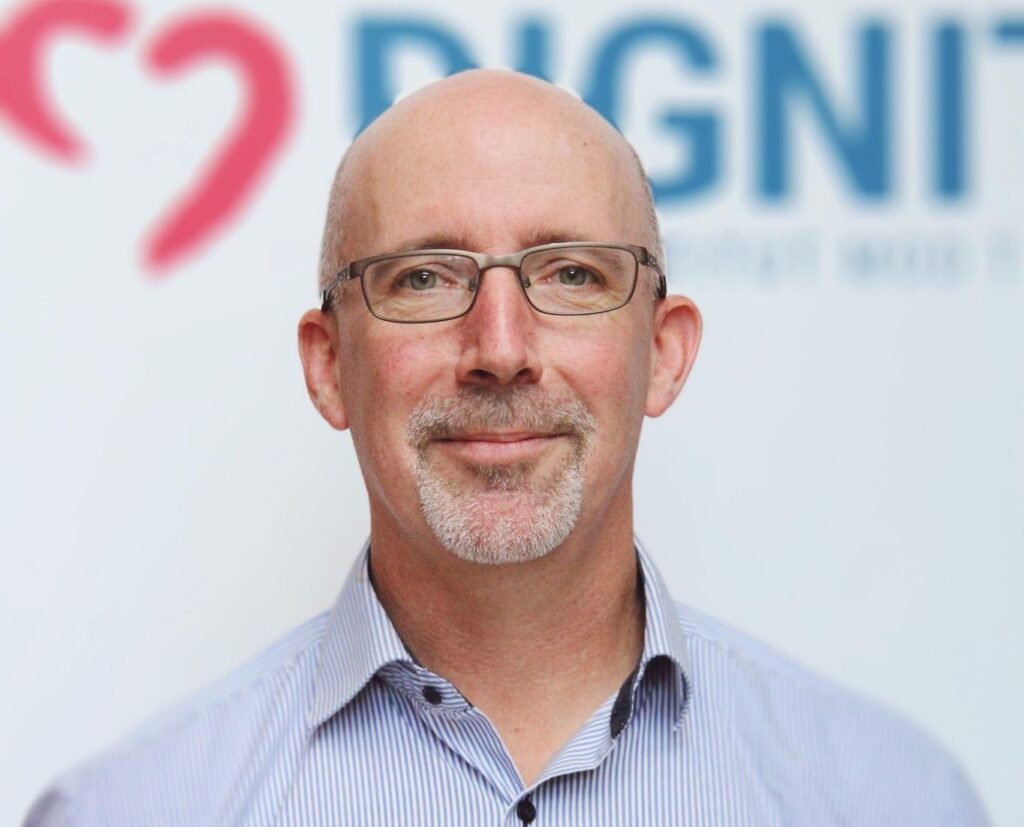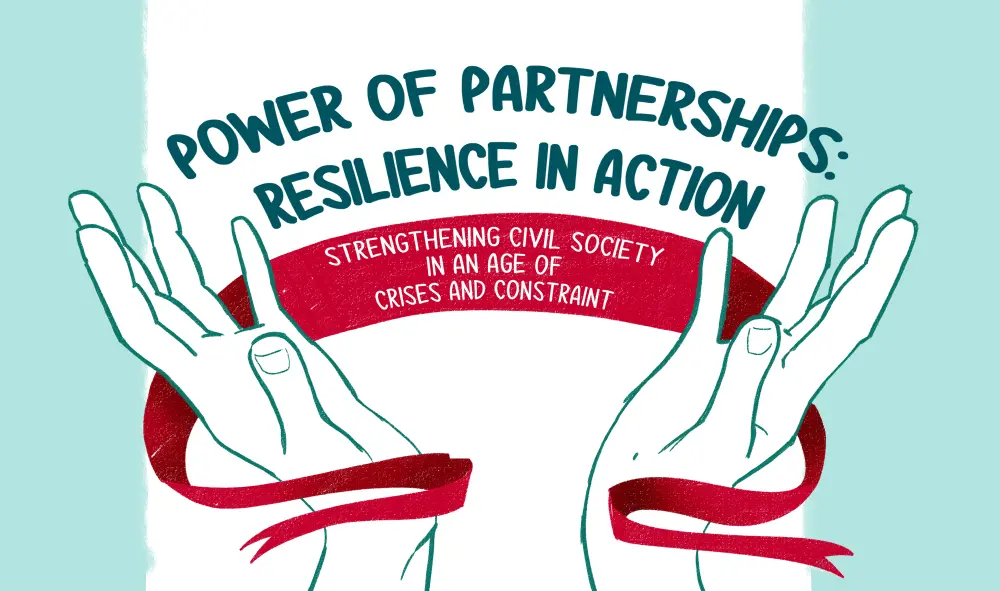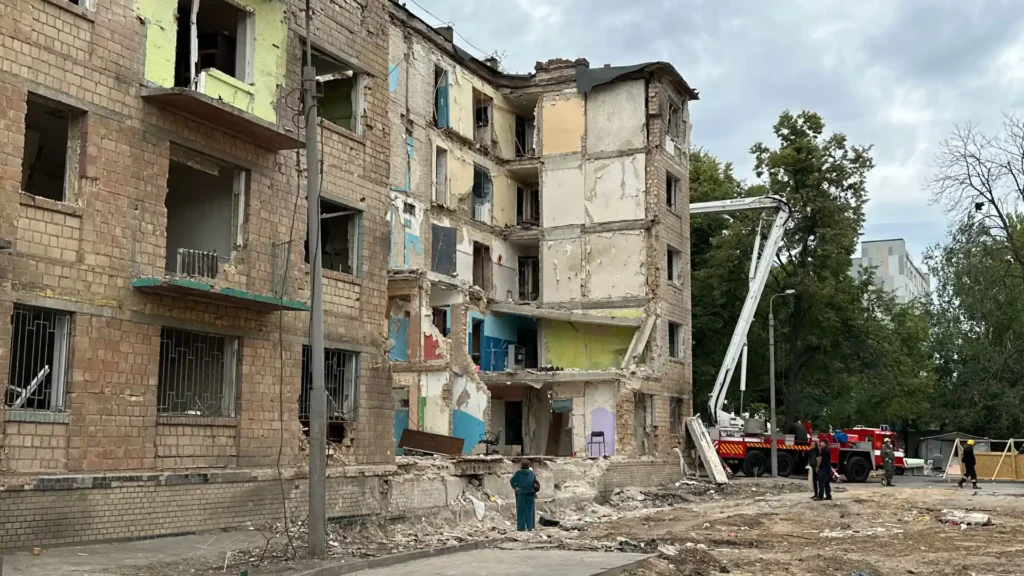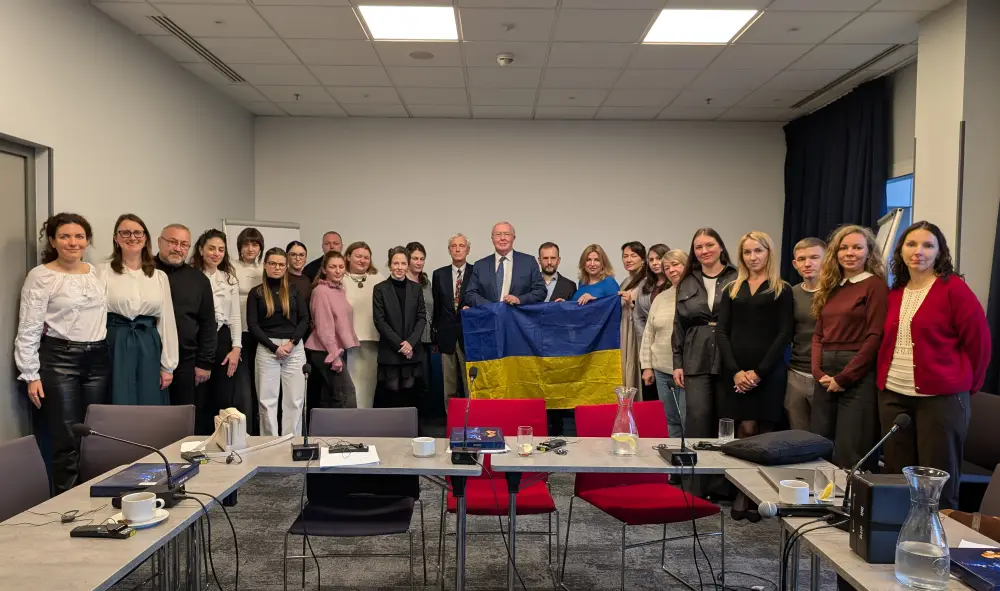Meet Andrew Jefferson who has studied prisons at DIGNITY for more than 20 years
»I usually hide the fact that my background is in psychology«, says 52-year-old Andrew M. Jefferson with a smile.
He grew up in Yorkshire, England, and has now been employed in a permanent position at DIGNITY (formerly RCT) since 2001. He even had an internship at RCT during his master’s programme in psychology at Copenhagen University as early as 1999.
For someone trying to downplay being a psychologist, he quite persistently kept educating himself in psychology. He took his bachelor’s degree (in psychology) at Brunel University in London in 1992, his master’s in Copenhagen in 2001 and, on top of that, a Ph.D. (in psychology) in 2004.
Nevertheless, he refers to himself as an ethnographer or a prison scholar – not once as a psychologist.
»The problem is that psychology tends to focus on the individual rather than pay attention to the societal structures. During my time at university in Britain I spent internships doing social work and in a therapeutic prison, and it became clear to me that I wanted to ‘get my hands dirty’ rather than work in traditional psychology«.
Resuming his psychology studies in Copenhagen in the late 1990s after moving to Denmark and being out of university for some years, Andrew Jefferson was inspired by the critical psychologists at Copenhagen University, particularly his Ph.D. supervisor Ole Dreier, who focused on societal influence and structures rather than the supposed problems and pathologies of individuals.
Andrew Jefferson defines himself as »radically trans-disciplinary« and refuses to be put into any kind of psychologist box:
»I see myself as a social scientist and believe that it is extremely important to be able to think beyond one’s own discipline. It is an important dimension to be able to think outside your box. And I’m aggressively against a mono-disciplinary approach«, says Andrew Jefferson.
Access to prisons
Working at RCT in the early noughties, Andrew Jefferson was encouraged to write a Ph.D. thesis:
»It turned out that most of my ideas had to do with prisons, so I decided to go to Nigeria and focus on prison staff. It was my first trip to Africa, and I was very naive. Quite a baptism of fire«, Andrew Jefferson recalls.
During a total of eight months, he studied the lives and circumstances of prison officers and even moved in on a camp bed for a few weeks with a couple (both prison officers) and their extended family. They lived in the prison barracks, adjacent to the training school and across the road from the prison making it an ideal site to participate in everyday prison officer life.
In that way he got as close as humanly possible to the people working in prisons.
Access to prisons was no big problem as Nigeria was, at the time, moving from a brutal military dictatorship toward democracy and reform. Andrew Jefferson found a supervisor at a Nigerian university and, through him, got introduced to the right people who were able to give access.
Human rights in African prisons can be dire, even in a country that tries to move away from dictatorship and introduce reforms. But the main criticism in Andrew Jefferson’s Ph.D. thesis wasn’t directed at prison conditions or the brutality of the staff but rather at the fact that many Western NGOs tend to propose standard solutions to human rights problems in non-Western prisons rather than understanding the actual problems and their root causes and deal with those:
»Generally, NGOs will have three assumptions about human rights problems and their causes in prisons outside Europe and North America. One: Management and staff don’t know about international human rights conventions. Two: There is a lack of rules in the prison systems. Three: The staff is not professional enough. Unfortunately, a lot of NGO work is driven by the solutions they already have in their top drawer. But you can’t succeed if you try to change something you don’t know enough about«, says Andrew Jefferson.
During his Nigerian fieldwork, Andrew Jefferson spent time at several prison training schools where several hundred recruits were treated brutally and disciplined militarily. After six months of training, they started working in prisons where they would treat prisoners the way they had been treated themselves:
»In the prisons they were no longer at the bottom of the hierarchy. But the reason why they were violent was not that they didn’t know about human rights. They had learned all that at training school. The reasons were more about lack of resources, pre-existing norms, and ingrained institutional practices «.
Pushing personal boundaries
Societies in transition have been a continuous theme in Andrew Jefferson’s work. Apart from working in a number of African states, he has also focused on Myanmar which has transformed from dictatorship toward democracy and, lately, back again. He admits that prison studies where you are confronted with suffering, tragedy, and misery on the individual, institutional, and societal level, can be frustrating and depressing:
»Prison studies should come with a public health warning. It is definitely not for everyone. And as prison scholars we have not yet found an ideal solution to caring for each other, even though that was one of the reasons why we formed the Global Prisons Research Network. It can be a bit of a challenge«, admits Andrew Jefferson.
»Ethnography doesn’t aim at short-term change and when you’re confronted with acute misery, it tends to push your personal boundaries«.
Frustrations aside, Andrew Jefferson is quite satisfied with his many years at DIGNITY and RCT:
»I know it may sound like a long time. But for the first many years I was always working on shorter contracts towards an end point. There has been a lot of variety in my projects, and DIGNITY is a unique place with huge opportunities in terms of access to the prisons I want to study – and for critical interactions with research partners and activists all over the world. You can see me as an embedded scholar within the world of practice. I can get my hands dirty and do theory at the same time«, says Andrew Jefferson.





